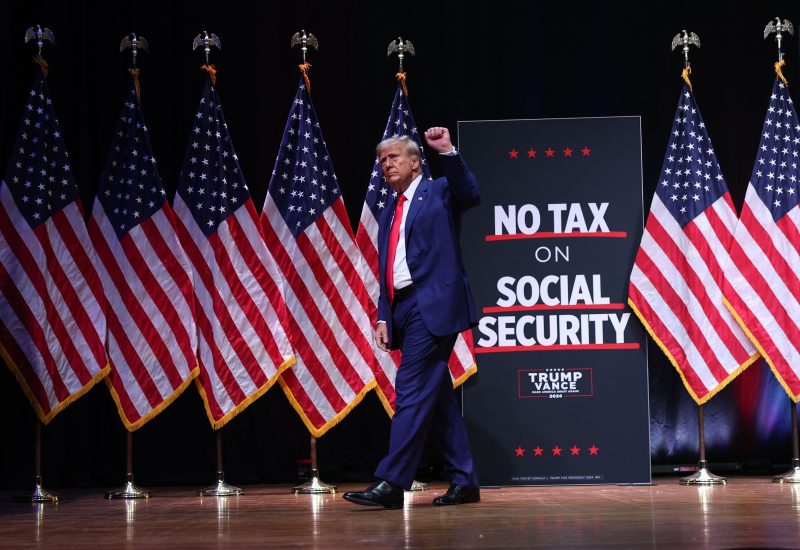In a recent development during a speech in North Carolina, former President Donald Trump hinted at the prospect of broadening his administration’s tariff policies. Trump’s address revolved around the importance of protecting American industries and workers by imposing tariffs on foreign imports that compete with domestic goods. This stance aligns with the protectionist trade policies of his administration, which sought to prioritize American interests over global free trade.
During his time in office, Trump imposed tariffs on various goods, including steel, aluminum, and products from China, as part of his America First agenda. By raising barriers to imports, Trump aimed to reduce trade deficits, protect American jobs, and stimulate domestic industries. These policies were met with a mixed response, with critics arguing that tariffs could lead to higher prices for consumers and harm international trade relations.
In his recent speech, Trump reiterated his commitment to supporting American workers and industries. By expressing openness to expanding tariff plans, he signaled a continuation of his protectionist approach to trade. This move could have significant implications for various sectors of the economy, as increased tariffs could impact the cost and availability of imported goods and influence trade dynamics with other countries.
The debate around tariffs is multifaceted, with proponents arguing that they can help level the playing field for domestic industries and protect them from unfair competition. On the other hand, opponents highlight the potential negative consequences of tariffs, such as retaliatory measures from trading partners, disruptions to global supply chains, and increased costs for businesses and consumers.
As the discussion on trade policy continues, it is essential to consider the broader implications of tariff measures. Finding a balance between protecting domestic industries and maintaining healthy international trade relations is crucial for fostering a sustainable and competitive economic environment. Trump’s remarks in North Carolina indicate that the conversation around tariffs and trade policies remains a significant aspect of the political and economic landscape, with implications that extend beyond national borders.
